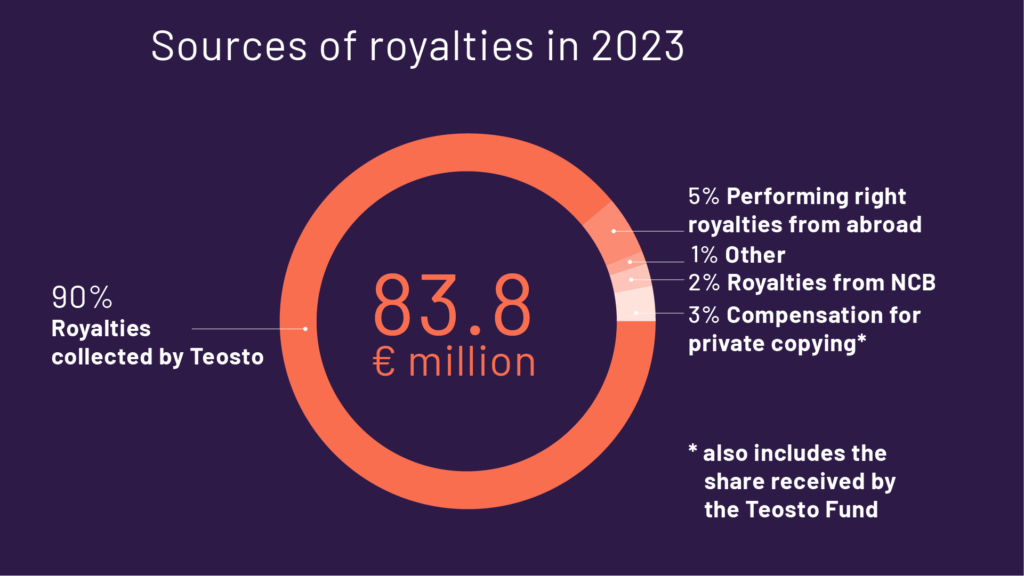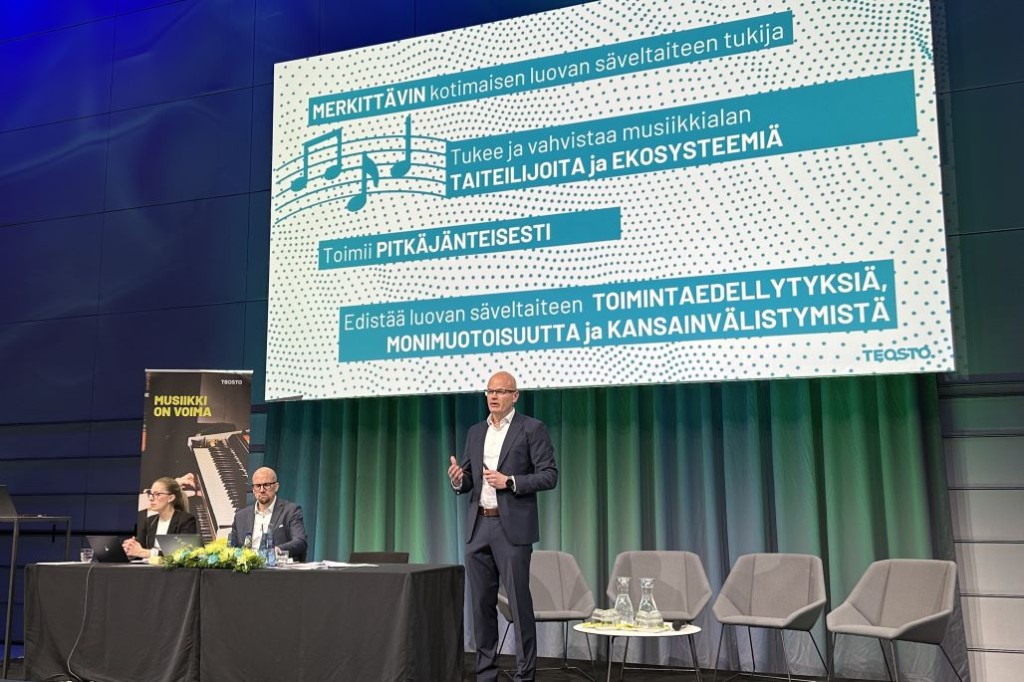Significant Support from Teosto’s Cultural Foundation for a new master’s program aimed at growing Finnish music industry
The Master’s Programme in Music Business brings a new kind of commercial expertise to the Finnish music industry amidst the transformations brought about by digitalisation and consumer behaviour. The English-language programme will launch at the Sibelius Academy of Uniarts Helsinki in autumn 2025, supported by the Teosto Cultural Foundation.
Traditionally, the Finnish music industry has excelled in its product – from music creation to production. However, the domestic market is limited, and growth in the sector can only come from international business. This programme aims to build growth by enhancing expertise in commercialisation, export and marketing.
“The ability to navigate the international development of the music industry – from production and distribution to rights management and audience engagement – is more crucial than ever. This expertise is key to ensuring the global growth and development of our field,” says Emilie Gardberg, dean of the Sibelius Academy of Uniarts Helsinki.
The two-year programme, leading to a Master of Arts degree, prepares students for expert and leadership roles both in Finland and the highly competitive global markets. It complements Uniarts Helsinki’s existing curriculum by fostering a deep understanding of both the creative and business processes within the music industry.
The programme equips musicians, music creators and industry professionals with commercial skills to work in agencies and management offices, record labels and publishing companies, music marketing, export, rights management and event production – as well as in the diverse networks of the industry.
Support from the Teosto Cultural Foundation
The programme was created in response to the needs of the Finnish music industry. It is implemented in collaboration with Music Finland, an expert organisation in music export, the University of Agder in Norway – a leading university in the field – and respected U.S. institutions.
The programme is supported by the Teosto Cultural Foundation, which has granted €100,000 in funding for the programme. Established in 2024, the foundation’s mission is to promote Finnish creative musical arts and the operational conditions of the field, with the goal of significantly increasing the value of music.
“The music business programme is a completely new initiative that perfectly aligns with the strategy of the Teosto Cultural Foundation. Through this programme, we can strengthen the structures of the Finnish music industry, enhance business expertise, and create even better opportunities for high-quality Finnish musical arts to gain visibility,” says Anna Baijars, chair of the board of the Teosto Cultural Foundation.
“Music Finland has strong global networks and in-depth expertise in the fundamentals of the music business. By inspiring and training new internationally-oriented professionals, we can strengthen the Finnish music industry,” says Mikko Manninen, executive director of Music Finland.
One of a kind
A steering group, composed of partner organisations, supports the development, quality control and active societal relations of the programme.
“With this excellent lineup, the programme draws not only from Finland’s rich artistic heritage but also from the practical expertise and best practices of the global music markets. Collaboration ensures a strong connection to working life and broad expertise, which enhances the programme’s international significance and appeal,” says Gardberg.
The Master’s Programme in Music Business is the first of its kind in Finland. Besides Norway, similar programmes can be found in EU countries such as Germany and Spain. The most extensive educational offerings in the field are available in the United Kingdom and the United States.
“Our new master’s programme is a great example of how music education can make an impact in society and ambitiously enhance the industry. At the same time, it strengthens our university’s profile on the global map of the music industry,” Emilie Gardberg concludes.


